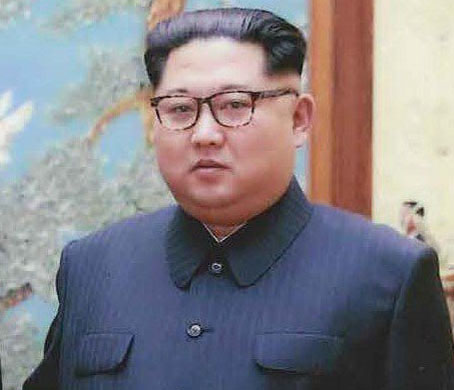by WorldTribune Staff, January 6, 2020
In the wake of the U.S. killing of Iranian terrorist chief Qasem Soleimani, North Korean dictator Kim Jong-Un may take a page from his father’s playbook and disappear from the public eye out of fear of a possible assassination attempt, analysts say.
Kim has not been seen in public since Soleimani was killed. However his regime has maintained its threatening rhetoric following the loss of a key leader in its strategic partnership with Teheran.

“For the time being, Kim may refrain from making public appearances out of fear that the killing of Soleimani means the U.S. can easily find Kim’s whereabouts as well,” a former South Korean government official told the Korea Times on condition of anonymity.
Related: Pentagon sent Pyongyang Christmas signal: Spy planes, leak about special forces, December 31, 2019
History backs up the official’s conjecture.
When the U.S. waged wars with Afghanistan in 2001 and Iraq in 2003, Kim Jong-Il, the then-North Korean leader, fell off the radar for months at a time.
On Monday, three days after the U.S. drone strike took out Soleimani, the North’s propaganda outlets carried their first reports on the incident.
“There is nothing to hesitate about in the face of growing hostile acts, nuclear threats and blackmail,” the Rodong Sinmun, the mouthpiece newspaper of the ruling Workers’ Party, said.
“We should continue to strengthen our impregnable military power quantitatively to ensure no one ever considers using armed forces against us until the U.S. withdraws its hostile policy.”
The state-run Korean Central News Agency (KCNA) reported that China and Russia had condemned the U.S. attack as a violation of the UN Charter.
Other analysts suggested the North Korean regime may use the killing of Soleimani to justify its attempt to intensify military forces.
“Although the regime may internally feel pressured, it is expected to engage in external campaigns to defend its development of nuclear weapons as a deterrent against U.S. hostility,” said Yang Moo-Jin, a professor at the University of North Korean Studies.
Former U.S. nuclear negotiator Robert Gallucci told Radio Free Asia that Kim Jong-Un may take a provocative approach and test a long-range missile, figuring the U.S. will not get involved with North Korea and Iran at the same time.
Park Won-Gon, a professor of international politics at Handong Global University, echoed Gallucci’s view.
“Due to the growing tensions between the U.S. and Iran, the U.S. government’s interest in the North Korea issue may lessen,” he said.
“If the U.S. keeps dealing with the Iran issue until February, the North may consider military provocations including launching an intercontinental ballistic missile and March could be a critical juncture for the North’s decision, depending on whether the U.S. and South Korea will resume a joint military exercise and the scale of the military war game,” Park said.
Intelligence Brief __________ Replace The Media
